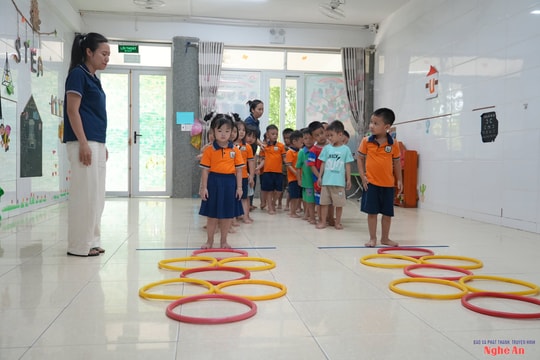4 seemingly harmless things parents do that have extremely negative impacts on their children
Many pieces of advice given by parents with the desire to bring the best to their children do not have the desired effect, or even the opposite.
1. Try your best to have a good future
A recent study shows that when we worry too much about something, it will inevitably lead to negative emotions such as anger, fatigue and stress. When children's minds are constantly trying to focus on the future - from getting good grades in class to the pressure to achieve higher achievements... they become more and more anxious and stressed.
And when anxiety acts as a driving force, stress will become chronic and long-term and will weaken the child's health and intelligence, such as reducing attention and memory. Therefore, parents need to consider when often forcing their children to focus too much on finding achievements and high scores, which can, on the contrary, reduce learning performance.
Children learn better and feel happier if they are mentally comfortable. And when children feel happy, they can learn faster, think creatively and solve problems more easily.
Studies show that happiness makes you up to 12% more productive. Positive emotions also make children less stressed, and help them overcome challenges and setbacks more quickly and get back on track. This is certainly good when children are focused on the goals they have in mind.
2. Constantly push children to overcome stress
What advice do parents usually give when they see their children showing signs of nervousness after exams or races? “Stress is inevitable, try to overcome it.”
Meanwhile, what we need to tell our children most at this time is “Forget about grades, relax and have fun to relieve your anxiety”. The anxiety and stress about grades along with the pressure to do better in school sometimes makes them unable to overcome. There have even been unfortunate suicides, especially in schools that always require high achievements.
For adults, when stressed, we can use some substances such as caffeine, alcohol, sleeping pills or go out with friends to balance and adjust our mood. But children are not like us, they are under more pressure without being able to relieve stress, so how can we help children balance?
Instead of forcing your child to overcome anxiety, teach them the skills they need to be more resilient in the face of stressful events. Give them a break from stress by skipping grades, competing to have fun the way they want, breathing in fresh air or taking yoga. These will help your child’s nervous system “rest and digest” instead of continuing to “fight”.

3. Always remind your children: Study, child.
Sometimes parents should let their children play and do nothing. Children should regularly participate in extracurricular activities and go out, instead of sitting indoors and…studying. Nothing makes children happier than being excited, having fun, finding new experiences and burning off energy after school or on weekends.
Besides, studies show that our brains are more likely to come up with great ideas when we are not focused on studying but when we are relaxing or playing in nature. So instead of scheduling a tight schedule for children to study, we should spend more time for children to play, immerse themselves in nature and animals.
4. Often force children to develop their strengths and win
Experts, meanwhile, advise: Let your child make mistakes and learn to fail. Parents tend to define their children by their strengths and often like to brag about their achievements. Many parents feel proud to introduce their child as a "math prodigy," an "orator," or an "artist."
But research by Carol Dweck at Stanford University shows that this mindset actually keeps kids stuck, and makes them less likely to try new things they might not be good at.
For example, when a child is praised for being good at sports, he will want to ignore his strengths and try to join the drama or chess club... In addition, being constantly praised and emphasized by parents will make children feel more anxious, pressured and will be discouraged when faced with failure or challenges.
Our brains are programmed to learn new things. And the better it is when we can face, absorb and learn from mistakes from a young age. Instead, identify your child's strengths, teach them that they can really learn anything, as long as they try, let them know that it's okay to fail, make mistakes...
According to research by Dweck, author of children's books, after lessons from failure, children will be more optimistic and even more enthusiastic when facing challenges and know what they need to do to improve the situation.
According to Danviet
| RELATED NEWS |
|---|


.jpg)
.jpg)




